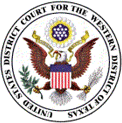Retirement accounts such as IRAs and pension plans can comprise much of a couple’s net worth, especially as the couple nears retirement. When retirement assets are hefty, it is especially important to understand property division so that each spouse gets their fair share without losing their portion to excessive taxes. If you’re a Michigan resident facing divorce, here are some essential points to keep in mind about dividing these accounts.
Equally dividing retirement assets
When couples are going through a divorce, it is essential to assess the value of retirement accounts as soon as possible even if the accounts are made of marketable securities. To achieve fair asset division, the accounts should be evaluated after taxes.
Deciding which division option is best can be more complicated if one spouse doesn’t plan to withdraw from the retirement accounts right away and will likely be in a lower tax bracket when they do withdraw the funds. It is also important to note that the tax rates of today may not be in place once the account holders retire.
Retirement assets can serve as collateral
Property division when it comes to non-liquid marital assets, such as the family home or business, can be used to negotiate for a higher share of retirement accounts. If a couple has a family business, the spouse who was active in the business may want to keep all of it by giving up their claim on a pension or IRA. Alternatively, the other spouse could receive shares in the business, and the shares will be redeemed after an agreed-upon time period.
If you need to know more about dividing your assets during divorce, speak with a qualified family law attorney. An experienced lawyer may answer your questions and walk you through the process.












